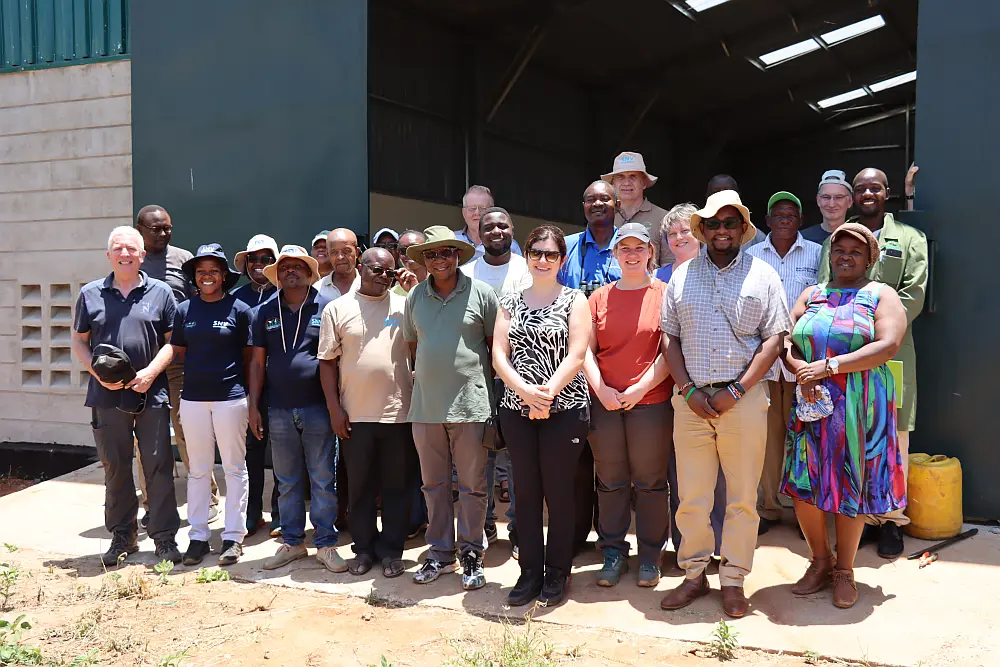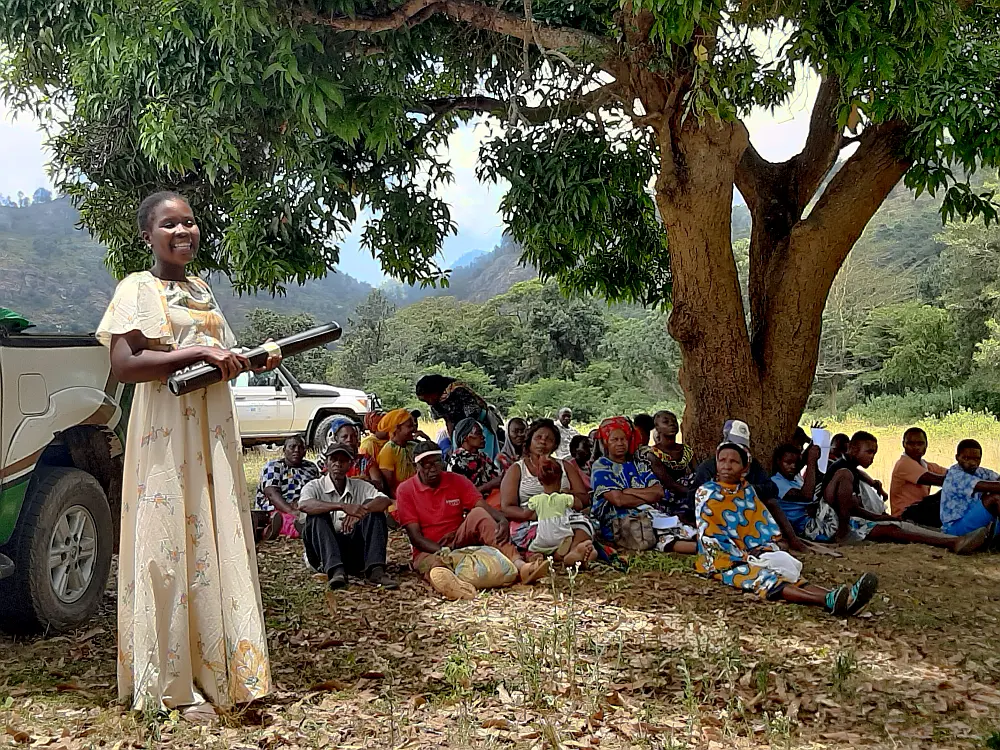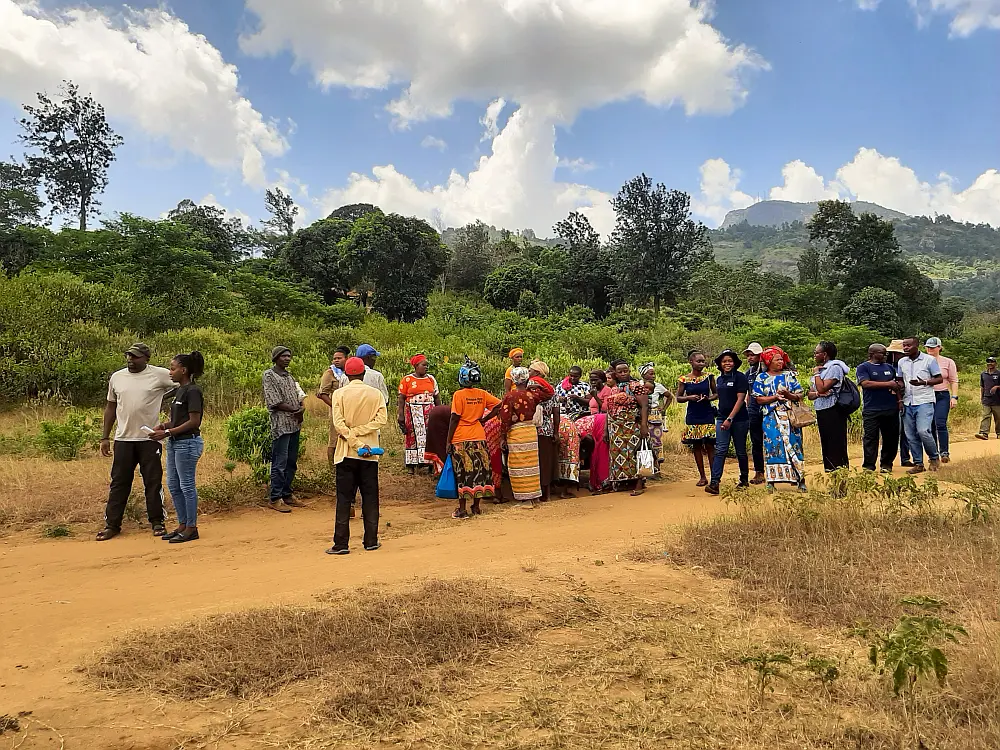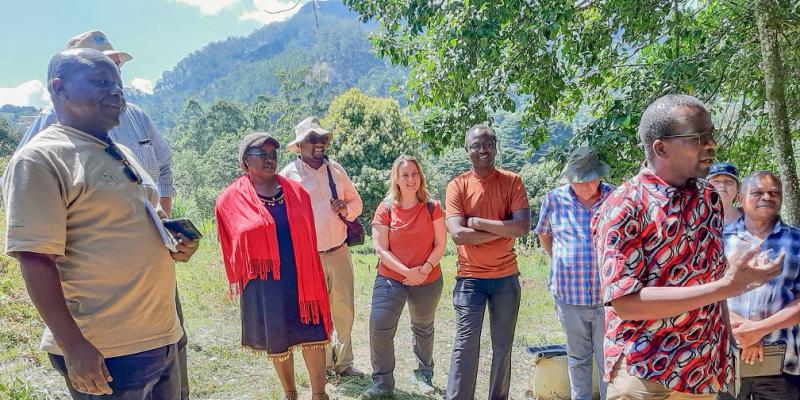Insightful monitoring visit by LSC-IS project donors and partners in Kenya
Climate change significantly impacts the quality and resilience of land, leading to food and nutrition insecurity for Kenya's growing population. Enhancing access to land, soil, and crop information can effectively support improved soil fertility management and soil and water conservation, mitigating the impacts of climate change while ensuring sustainable agricultural practices.
The Land, Soil, and Crop Information Services (LSC-IS) project is developing information hubs in national agricultural research organisations in Kenya, Ethiopia, and Rwanda. The main objective of this project is to enhance the effectiveness of national Agricultural Knowledge and Innovation Systems (AKIS) while promoting rural transformation and climate-smart agriculture in East Africa. The data hubs, currently populated with consolidated data from various existing sources and portals, will facilitate access to information for agricultural decision-makers, extension staff and farmers at national, regional and local level.
On 19-21 February, together with SNV in Kenya, the LSC-IS project team organised a joint monitoring visit to Taita Taveta County in Kenya for representatives of the European Union Delegation in Nairobi, the Embassy of the Netherlands in Kenya and the Netherlands Ministry of Foreign Affairs. They visited LSC-IS project sites, met with stakeholders, and witnessed firsthand the project's progress and impact.

A courtesy visit introduced the projects to Governor Andrew Mwadime Wakujaa, who confirmed the County's commitment to working with development partners to improve the livelihoods and build resilience of communities in Taita-Taveta County.
During the three-day visit, they had the opportunity to visit three farmer groups in Wundanyi and Mwatate Sub-Counties. The farmers described the challenges they face in producing crops in changing rainfall patterns and their need for information on how to better manage soil fertility and erosion under these conditions. They also presented the results of the LSC-IS project’s participatory planning exercises conducted in January, which involved the Kenya Agriculture & Livestock Research Organisation (KALRO), one of the implementing partners of the LSC-IS project in Kenya, and the County Department of Agriculture (CDA).

The visit showed that the LSC hub in Kenya is closely integrated into KALRO. In Taita Taveta County, in LSC-IS, KALRO is working closely with the County Department of Agriculture. Thereby, the LSC hub supports the planning and implementation of the County’s activities on the ground. Also, by including actionable data and engaging ‘infomediaries’, the LSC hub supports activities on soil fertility management and soil and water conservation by communities and farmers themselves.
The visit helped better understand the purpose of the LSC-IS project. It showed that the project is valuable in supporting development activities at the County level and in making available data to communities and farmers, which is expected to have a positive impact.

Furthermore, the joint visit offered the opportunity for exchange between development organisations and institutions involved in various projects in the county and for seeking opportunities for synergies, especially between the DeSIRA-funded projects.
Note: news item originally published on LSC-IS project website. Click here to read the full version.
About LSC-IS project
The LSC-IS project is funded by the European Union through its DeSIRA program and the Netherlands' Ministry of Foreign Affairs, with a contribution from ISRIC-World Soil Information. The project is implemented by Wageningen University and Research (WUR), ISRIC-World Soil Information, International Livestock Research Institute (ILRI), Kenya Agriculture & Livestock Research Organisation (KALRO), Ethiopia Institute of Agricultural Research (EIAR), Rwanda Agriculture Board (RAB) with World Agroforestry Centre (ICRAF), International Union for Conservation of Nature (IUCN) and German Aerospace Center (DLR).
